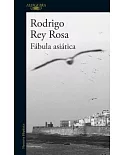'Yocandra, the first-person narrator, was born (like Vald歋s herself) in Havana in 1959. Now a dispirited, outspoken woman living in Cuba, narrator writes of a reality of 'nothing' that
contrasts poignantly with that of a gusana friend in Madrid with whom she exchanges letters. This colloquial, idiomatic translation of La nada cotidiana reflects work's humor and word play.
Brief but helpful translator's notes'--Handbook of Latin American Studies, v. 58.http://www.loc.gov/hlas/Born the year of Castro's revolution, Yocandra grows up to see how the regime is turning
her island into a wasteland of despair, and she finds that by escaping into a world of dreams, humor, and sex, she can cope with life in Cuba





















